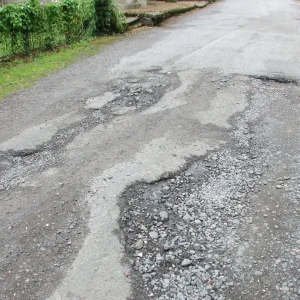Traffic figures increased to record levels in 2016, new Government statistics have revealed.
According to the Road Traffic Estimates: Great Britain 2016 report, 323.7bn miles were driven on UK roads last year, a rise of 2.2% compared with the previous year.
Car traffic grew by 2% from 2015 to 252.6bn million vehicle miles, a new record, while van traffic rose faster than any other vehicle type, up 4.7% to 49.1bn vehicle miles.
According to statistics from 2015 – the most recent available – 89% of passenger miles are carried out by road, while commuting and business travel makes up 38% of the car driver mileage in England.
Last year, car traffic levels increased on all road types, with new highs being achieved on motorways and rural roads, but remaining below the urban road peak of 2002. The Government claimed that the fastest growth in car traffic (in percentage terms) over the last 10 years has occurred on rural and minor roads, whereas there has been a fall in car traffic levels on urban roads in the last decade.
Road transport accounted for 22% of UK’s CO2 emissions in 2015 (the last available figures), however, the Government said these emissions fell by 6.3% between 2000 and 2014, despite a 7.6% increase in vehicle miles travelled over the same period, something the Government put down to improving fuel efficiency and a rapid rise in the sales of ultra-low emission vehicles.
“These figures underline the importance in having a road network that is truly fit for purpose – and a reminder to whoever forms the next Government that investment must be sustained to support further economic growth, and to provide roads that deliver safe, reliable journeys for every UK motorist,” said RAC roads policy spokesman, Nick Lyes. “Local roads are also seeing traffic growth and many are struggling to cope with a depressing combination of congestion and potholes.”
Mark Shankland, managing director of AA Tyres said: “With commuting and business trips contributing to the largest share of personal car traffic, it’s clear that drivers are more regularly covering the sort of mileage that used to be reserved for long summer trips. This places even more of an onus on drivers to make regular checks on their vehicles – instead of just ahead of holiday getaways.”





